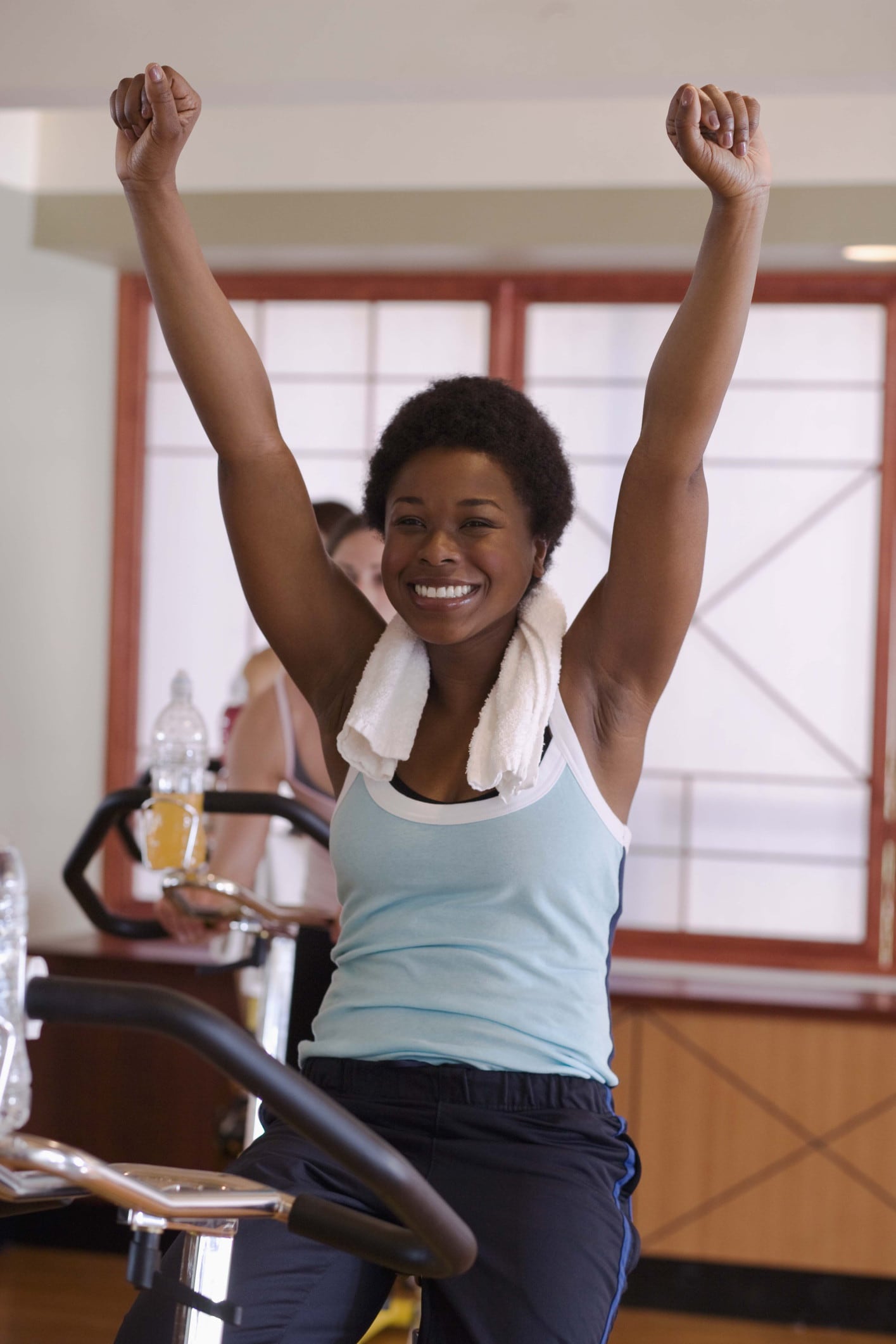 Working out vigorously each week may dramatically lower your risk of developing an aggressive form of breast cancer found to be more common in black women, according to new research from the Black Women’s Health Study (BWHS).
Working out vigorously each week may dramatically lower your risk of developing an aggressive form of breast cancer found to be more common in black women, according to new research from the Black Women’s Health Study (BWHS).
“These findings are very encouraging,” says Lucile Adams-Campbell, Ph.D., an internationally known epidemiologist at Georgetown Lombardi Comprehensive Cancer Center and a leader of the BWHS. “Knowing that exercise may protect against breast cancers that disproportionately strike black women is of great public health importance.”
Campbell and the BWHS (the largest study of black women’s health in history, with nearly 50,000 participants) team found that black women who exercised briskly for an average of three hours or more a week had a 47 percent reduced incidence of a particularly aggressive and hard-to-treat type of breast cancer (sometimes called triple negative breast cancer) that has been linked to higher incidences of breast cancer and loss of life in black women.
“We all want to do what we can to reduce our risk of disease and improve our health,” Adams-Campbell says, “and along with other well-known benefits, we now show that exercise can possibly stave off development of potentially lethal breast cancer in black women.”
Best bet, brisk workouts include:
? Biking or spin class
? Race walking or running
? Dance workouts that raise your heart rate, such as Zumba, and salsa
? High-impact aerobics and kick boxing
The Perfect Gift for Mom
Of course, get mom a bottle of her favorite perfume or a gorgeous pair of luxurious, leather gloves for Christmas, but if you really want to show her how much you love her, place a gift that protects her health and well-being under the tree.
A team of 35 nurses, therapists, social workers and home health aides were surveyed and asked what did people over 65 in their care need and appreciate most. Debbie Jansky, assistant nurse manager and team leader at Home Health Services at Gottlieb Memorial Hospital, reports, “These are the holiday gifts I recommend regularly. They are used and appreciated every day,” she said.
Here are Jansky’s top picks for holiday gifts:
Medication organizers. The E-pill line of organizers offers a full range of choices, from very simple pop-open cases to alarm and computerized designs. No matter what you choose, the gift will give you and your loved one piece of mind. $24 and up.
Pill punch. “Many medications come in a multi-punch card that those with arthritis have trouble manipulating,” said Clark Chrisman, a pharmacist at Gottlieb. This pill puncher easily pushes the individual pill through the sealed packaging. $7.
High-fashion medical identification jewelry. The company Lauren’s Hope makes beautiful ID jewelry in a range of designs (silver, gold, beaded, with pearls and more). Yet, the engraved plate alerts medics to important medical information, such as allergies to penicillin, diabetes or other health issues. $20 and up.
New Star Pro Grabber. This lightweight, foldable tool has a sturdy claw-like “hand” that can be used to retrieve items from high shelves (therefore keeping mom off of ladders) or retrieve a shoe from under the bed. $6.99.
Adjustable cane. Fashionable Canes offers lightweight, foldable canes in designs and colors to match every outfit — from polka dots to plaids and in a range of colors. It’s sleek enough to tuck into a tote bag. A fall can be devastating to an older person, so this is a perfect, health-sparing gift for someone with poor balance. $25 and up.
Diabetes Drug Good for Women’s Hearts
Good news for the millions of black women living with diabetes (our rate is nearly double that of other groups). A very common diabetes medication, metformin (Glumetza, Fortamet, Riomet, Glucophage), has a positive effect on the heart. A small study published in the December 2013 issue of the American Journal of Physiology (a subsection of Heart and Circulatory Physiology), examined the impact of metformin and other diabetes medications on the hearts of men and women.
Researchers divided 78 patients with diabetes into three groups. The first group received metformin alone; the second received metformin plus rosiglitazone (Avandia); and the third received metformin plus omega-3-acid ethyl esters (Lovaza), which is a kind of fish oil.
Metformin helps the body manage blood sugar levels by reducing glucose production by the liver. That helps your body become more sensitive to insulin. Rosiglitazone also improves insulin sensitivity and is known to move free, fatty acids out of the blood. Lovaza is prescribed to lower blood levels of triglycerides, another type of fat.
In women, the metformin had the desired, positive effect — it increased glucose uptake by the heart (the heart is a muscle, so it needs glucose to do its job) and lowered fat metabolism. The women in the study were able to improve heart function even more by taking the drug rosiglitazone.
The drugs did not have the same positive effect on the hearts of men, showing a sex difference in the way the heart functions.
“We saw dramatic sex differences in how the heart responds to the different therapies,” said senior author Robert J. Gropler, M.D., professor of radiology. “Our study suggests that we need to better define which therapies are optimal for women with diabetes and which ones are optimal for men.”








